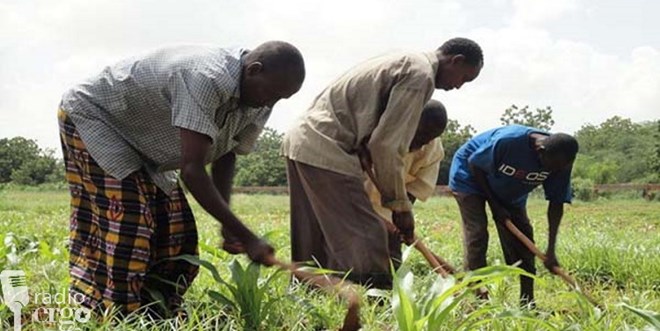
Monday December 13, 2021
Hundreds of struggling pastoralist families who have moved to Jalalaqsi town in Somalia’s Hiran region due to the drought have been given land to cultivate along the river Shabelle by local farmers.
Farmers, elders, and the Jalalaqsi district administration met to decide what to do about the impoverished families migrating from the rural areas over the past three months after losing their livestock.
They agreed that the administration would cover the cost of farming for these displaced families and the local farmers would donate part of their farms without charge.
Halimo Ibrahim Isack, a widowed mother of five children, maize and tomatoes on 20 November on the half acre she was allocated. The seeds and farming costs were paid for her by the district administration.
“I am much more optimistic today than I was yesterday as now I have been given a farm along the river. I hope this will change our lives for the better,” she said.
Halimo and her children fled from a rural village on the border of Hiran and Middle Shabelle after losing her 25 goats and 29 cows. She and her children are now staying with relatives who are residents of Jalalaqsi town. She earns $2-$3 doing casual laundry jobs and spends the rest of her time farming.
“I am very happy with my life now. I was heartbroken when I lost my livestock. May God bless the wealth of the people who helped us and bless what we have received. We thank them a lot,” she said.
Omar Abdulle Nur, one of the elders in Jalalaqsi and also a farmer, told Radio Ergo that they called on the local community to come to the aid of the pastoralists displaced by the drought. He said it took the elders a month to rally the farmers to the cause.
The land is not being given permanently but is being made available until the pastoralists recover from the drought. The local elders selected those who would benefit based on their vulnerability.
Omar said he has given three of his nine hectares to four families displaced by the drought.
“They use my farm generator for free. If they can’t raise the fuel money, I collect money from the local farmers and buy them fuel. I don’t take any money from them, and I have also told the neighbouring farmers to help the pastoralists who fled here seeking our assistance,” he said.
Abukar Ali Mudey, a father of five, who fled from Gamaasle village in early November, has planted sorghum and maize on the three hectares he was given to farm. He received the seeds from the district administration and rented a tractor with his own money to plant.
Abukar lost 40 goats in September and keeps his surviving 30 goats and 23 cows on the outskirts of town. His family is living off food he takes on credit from local stores, as his livestock are sick and currently lack market value.
“The people here are Somalis who know each other. I am borrowing from them to provide for my family,” he said.
Jalalaqsi district commissioner, Mohamed Nur Dabashe, told Radio Ergo that the administration recognised the only way they could help the desperate families was by giving them land to cultivate. The authority was not able to provide them with food aid.
Mohamed stated that the seeds they distributed to the pastoralists were donated by the UN Food and Agriculture Organisation (FAO) and Norwegian Refugee Council (NRC). So far 700 out of the 1,000 families arriving in Jalalaqsi town and surrounding have been given land to farm.